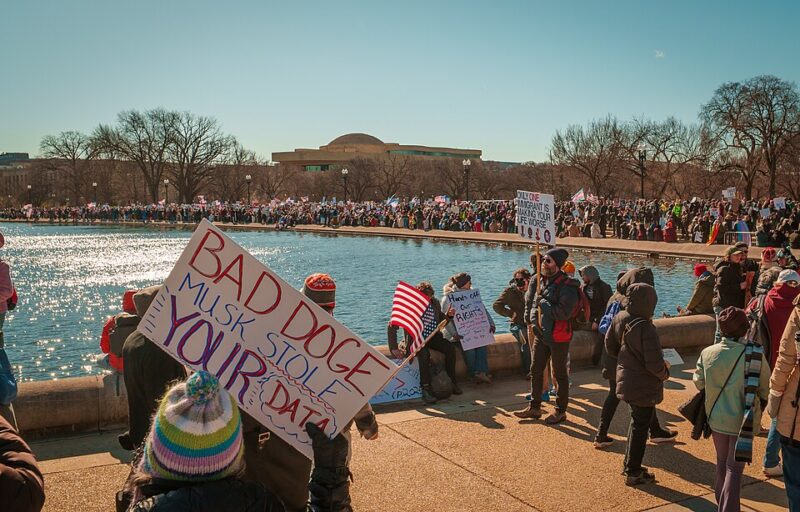We The People — From the Million Man March to No Kings
Share
Explore Our Galleries
Breaking News!
Today's news and culture by Black and other reporters in the Black and mainstream media.
Ways to Support ABHM?
By Mustafa Ali, Word in Black

Thirty years ago, I stood shoulder to shoulder with a sea of Black men on the National Mall, our presence a sermon stitched from hope and history. October 1995 — the Million Man March — turned pavement into sacred ground and silence into a thunderous hymn of purpose. Public Enemy’s “Fight the Power” pulsed through the crowd like a heartbeat, and in that rhythm we reclaimed an eternal truth: power belongs to us — until we surrender it.
Today, as we stand in the long shadow of that history, the need for that power feels even more urgent. We inhabit a moment where tyranny has learned to wear a suit and smile for the cameras, where the language of democracy is twisted to justify undemocratic ends. The Trump era — both its first act and its bitter sequel — is defined not just by policies, but by a worldview: that power belongs to the few, that fear should silence the many, that the myth of a strongman is stronger than the will of a people. It is precisely in times like these that mass movements become not just resistance but lifelines.
Mass movements are the immune system of democracy. They are how we remind governments — and ourselves — that power flows upward from the governed, not downward from a throne. When thousands flood the streets for racial justice, when millions march for women’s rights, when workers walk out in solidarity, we are doing more than protesting. We are rewriting the story of who we are and who we refuse to become. Movements transform despair into discipline, anger into architecture. They teach us that democracy is not a spectator sport; it is a collective act, repeated over and over, until power bends.
The No King’s Movement, born from a rejection of authoritarian drift, is part of this lineage. It is not about party or politician — it is about principle. It is the insistence that America was not built for monarchs, that we are not subjects but citizens. When people gather under that banner, they echo the spirit of the marchers who faced down water cannons and dogs in Birmingham, the suffragists who chained themselves to fences, the elders who crossed the Edmund Pettus Bridge with nothing but faith as their armor. They carry forward the legacy of the enslaved who fled and fought, the laborers who struck, the dreamers who refused to be silent.
Keep reading on Word in Black.
Many who were alive during the Civil Rights Era may see similarities with today’s activism.









Comments Are Welcome
Note: We moderate submissions in order to create a space for meaningful dialogue, a space where museum visitors – adults and youth –– can exchange informed, thoughtful, and relevant comments that add value to our exhibits.
Racial slurs, personal attacks, obscenity, profanity, and SHOUTING do not meet the above standard. Such comments are posted in the exhibit Hateful Speech. Commercial promotions, impersonations, and incoherent comments likewise fail to meet our goals, so will not be posted. Submissions longer than 120 words will be shortened.
See our full Comments Policy here.